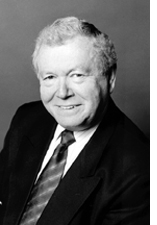By Rabbi Dow Marmur

JERUSALEM — There’s new statistical evidence that when Israelis say that they’re secular, it doesn’t mean that they’re non-believers. Thus though 46% of Jewish Israelis describe themselves as secular, 80% say that they believe in God and 65% believe that the Torah is God-given in one way or another.
When it comes to traditional observance, the figures are equally remarkable: 94% circumcise their sons, 92% observe shiva, 91% celebrate Bar Mitzvah, and even in this macho society, 83% celebrate some form of Bat Mitzvah. 86% of all Jewish Israelis want a traditional Jewish burial.
Please note that these figures are considerably higher than the total figure of those who describe themselves as traditional (32%), religious (15%) and haredi (7%).
It’s possible that the confusion stems from terminology. Many Israelis identify “religious” with “halakhically observant.” The same mistake is made in the Diaspora where “religious” is often confused with “Orthodox.” It seems that we may now live in a post-halakhic age and observe Mitzvoth not necessarily in the way Halakhah translates commandments into laws as practiced in Orthodox Judaism.
Thus though only a third observe Shabbat according to Orthodox Halakhah, 66% light candles and 60% make Kiddush. 85% keep Jewish festivals, 82% light Hanukkah candles, 68% fast on Yom Kippur and 67% refrain from eating chametz on Pesach. 76% observe kashrut, but again not necessarily strictly halakhically.
The pollsters report that the figures that affirm Jewish observance were higher in 2009, when this survey was done, than the one they did a decade earlier. Contrary to what pundits like to bemoan, Jews seem to be coming closer to Judaism, not moving away from it. The survey was done by respected academic researchers and sponsored by very responsible independent foundations.
It would be fascinating to compare these data with corresponding polls in one or more countries of the Diaspora. It’s reasonable to assume that there’s much less overall tangible commitment to Judaism as a faith and as a way of life outsideIsrael.
With this in mind, I’ve argued for many years that if we decide on, say, ten criteria for being Jewish and then interview, say, 100 synagogue members abroad and a similar number on a street corner anywhere in Israel, the latter are likely to score higher.
I believe this to have important implications for non-Orthodox (primarily Reform and Conservative) Judaism inIsrael. For a long time, its leaders addressed their message to the 32% who describe themselves as traditional, often strongly criticizing the 46% who believe that they’re secular. According to the above statistics, these so-called secular Israelis may be closer to non-Orthodox religious Jews than it had been assumed.
The fact that this isn’t reflected in synagogue affiliation is, firstly, because on the whole Israelis don’t affiliate but use institutions by paying for services rendered. Secondly, as non-Orthodox institutions aren’t recognized by the State of Israel and, therefore, scarce, those who need one tend to turn to the nearest Orthodox synagogue.
But once the warped political situation changes and the post-halakhic nature of contemporary Judaism is recognized, progress is likely to be considerable. I hope that the leaders of Conservative and Reform Judaism inIsraelwill convey this cheerful message.
*
Rabbi Marmur is spiritual leader emeritus at Holy Blossom Temple in Toronto. He now divides his time between Canada and Israel and may be contacted at dow.marmur@sdjewishworld.com